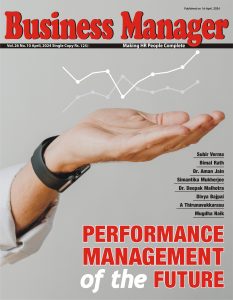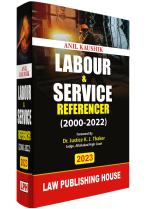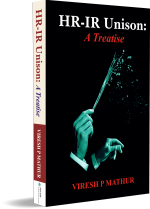The Single Bench of the Delhi High Court in the case of Shiwang Tripathi & Ors. vs Union of India & Ors. consisting of Justice Rekha Palli observed that the extension of apprenticeship period cannot lead to the claim that the parties are akin to regular employees, or that the period of apprenticeship should be seen as probation period.
Facts
The 97 petitioners, working as accounts apprentices with the respondent no.2 company (National Insurance Company Limited) were appointed pursuant to the selection conducted in terms of an advertisement. Their performance during their apprenticeship training was duly appreciated by their superior officers from time to time and their period of apprenticeship was, with the approval of respondent’s Board, extended for six months. This period was once again, with the approval of the Board, extended for a further period of six months. As the last extension letter specified that it was the final extension being granted to the Accounts Apprentices, the petitioners apprehending termination of their services, submitted representations to the respondents seeking their absorption as Administrative Officers (Scale I). But no steps were taken by the respondent company to regularize their services with all service and consequential benefits, including seniority. Hence, the present petition.
Also read: Leaderless Groups – Myth or Reality?
Contentions Made
Petitioner: Apprentices were assured that in case there were vacancies for the post of Administrative Officer (Scale I), they would be considered for absorption, subject to their performance being satisfactory, and only on this condition they left their former services to join this company. Since company has severe shortage of manpower and no fresh recruitments for the past several years, absorption of the Accounts Apprentices, including the petitioners would enable the company to achieve the desired level of improvement in the quality of accounts. The extension in the period of apprenticeship would be treated as probation period as the petitioners were always made to believe that they would be absorbed in the respondent company. Once the Actuarial Apprentices have been absorbed as regular employees, the non-absorption of the petitioners who are working as Accounts Apprentices into the respondent company, is wholly discriminatory and violative of Articles 14 and 16 of the Constitution. Once the Chairman-cum-Managing Director has, with the approval of the Board, sought permission for absorption of the accounts apprentices, the respondents cannot now be permitted to take a contrary stand, or urge that on account of restructuring, they do not propose to make any direct recruitment.
Respondent: The maintainability of the petition was challenged on the ground of the petitioners having an alternative efficacious remedy u/s 20 of the Apprentices Act, 1961 (“the Act”). The petitioners cannot claim that they must be absorbed even if the respondent company has neither any requirement nor finds it appropriate at this stage to incur any further financial liabilities. An apprentice can never be considered as employed for work of the company and as per the scheme of the Act there is no obligation on an employer to offer employment to him/her, except when there is a specific condition.
Observations of the Court
The Bench, relying on Section 22 of the Act noted that there is generally no obligation on an employer to absorb the apprentices. But Section 22(2) of the Act makes an exception regarding a situation where the apprenticeship contract has a condition making it mandatory for the apprentices to serve the employer after the successful completion of the training.
The Bench could not find any clause either containing any assurance to the petitioners that all the apprentices would be necessarily absorbed upon completion of their apprenticeship, or any obligation on the apprentices to serve the respondent after completion of the apprenticeship as envisaged under Section 22(2) of the Act. The appointment letter also did not contain any such promise or assurance. On the other hand, clause 3 of the same specified a bond period of only one year. Thus, there was no reciprocal obligation on them to serve the respondent company after the completion of their apprenticeship period.
The Bench observed that merely because the petitioners’ apprenticeship was extended as per the advertisement, they cannot claim that they are akin to regular employees, or that the period of apprenticeship should be treated as a probation period. It was also observed that the mere fact that at one stage, the respondent company thought that it would be beneficial to absorb these apprentices, cannot be construed as any estoppel against the respondents from taking a plea that they do not now deem it appropriate at this stage to either absorb the apprentices, or to fill up the posts through direct recruitment.
Regarding the submission that the non-absorption of petitioners is violative of the Constitutional provisions, it was noted that there is no bar in law, which would prevent an employer from absorbing any category of apprentices as it deems fit. Further it was noted that keeping in view the availability of sufficient number of trained accounts personnel, no such decision to absorb the Accounts Apprentices was deemed appropriate.
Judgment
Having not found any merit in the petitioners’ claims, the writ petition, along with the pending applications, was dismissed.
Case: Shiwang Tripathi & Ors. vs Union of India & Ors.
Citation: W.P.(C) 6811/2022
Bench: Justice Rekha Palli
Decided on: 3rd June 2022
Stay connected with us on social media platform for instant update click here to join our LinkedIn, Twitter & Facebook




































Add comment